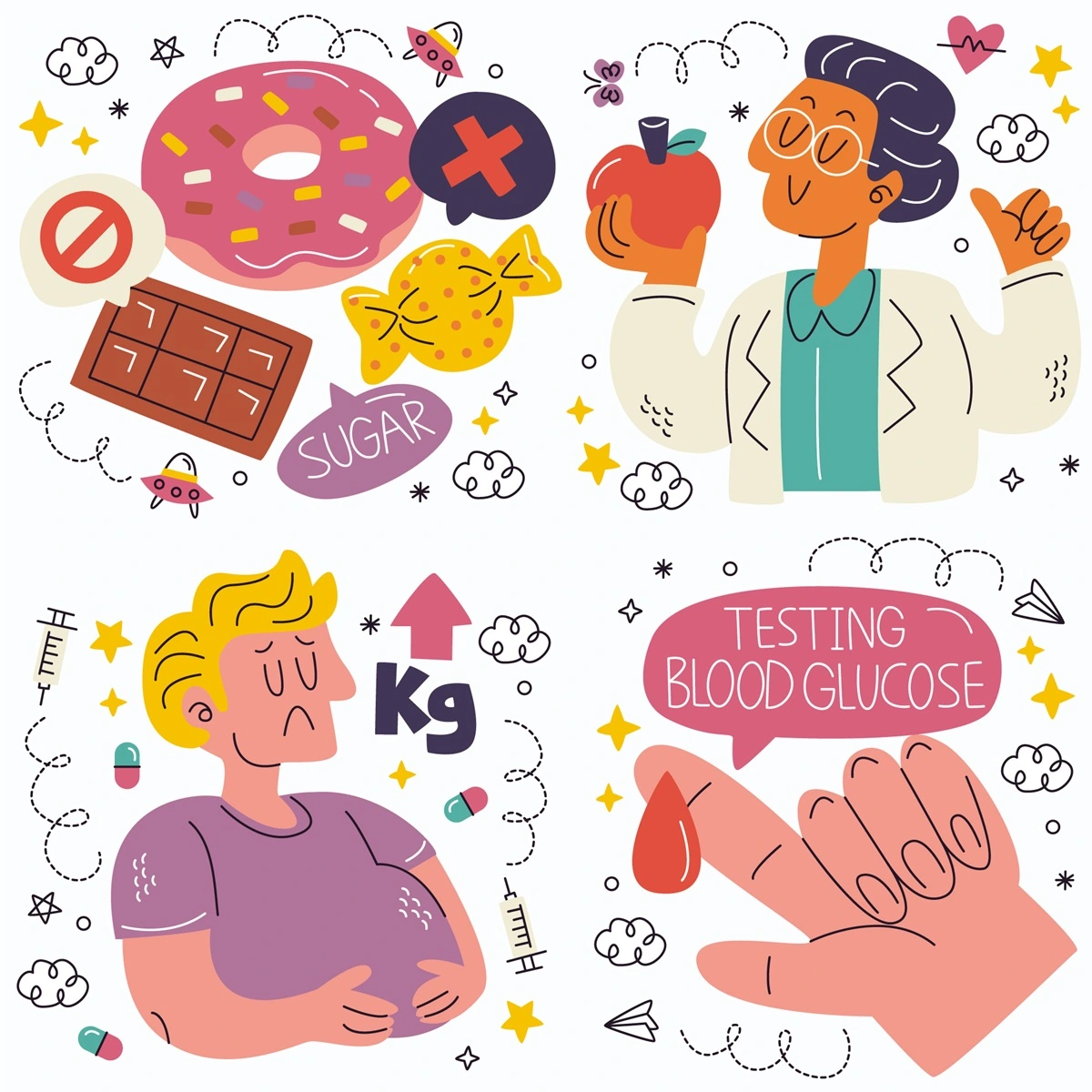Sugar is part of many diets. However, its impact on mental health often goes unnoticed. Too much sugar may seem harmless, but it affects your brain and mood. Its negative effects include mood swings, focus issues, and long-term mental decline. Here are five important reasons to limit sugar to improve mental health.
1. Stabilizes Mood and Reduces Anxiety
Eating sugar causes blood sugar levels to spike. This brings a quick energy rush, but it doesn’t last. Soon after, a “sugar crash” occurs, leaving you tired and irritable. This up-and-down cycle affects mood and can increase stress and anxiety.
Over time, sugar highs and lows can lead to mood disorders. When blood sugar is unstable, emotional balance is hard to maintain. Anxiety levels can rise, making it harder to handle daily stress.
Actionable Tips to Avoid Sugar Spikes:
- Start your day with protein. Eggs, yogurt, or nuts are great choices.
- Swap sugary snacks for nuts, fruits, or seeds.
- Avoid sugary drinks like soda and energy drinks, especially in the morning.
Reducing sugar intake helps stabilize blood sugar levels. This balance results in a more consistent mood. By cutting back on sugar, you avoid dramatic mood swings. The result? A calmer, more balanced emotional state that helps you handle stress.
2. Lowers the Risk of Depression
Too much sugar can impact your mental health over time. Studies show that high sugar intake links to depression. Sugar disrupts serotonin, a neurotransmitter that affects mood. With less serotonin, you may feel low or depressed.
High sugar consumption can also cause brain inflammation. Chronic brain inflammation has ties to depression. By reducing sugar, you reduce inflammation. This may protect your brain from depressive symptoms.
Step-by-Step Guide to Reduce Sugar Intake:
- Check food labels for hidden sugars.
- Swap candies and sugary snacks for fresh fruits.
- Replace sugary desserts with Greek yogurt and berries.
Cutting sugar promotes a healthier brain. Less sugar means less inflammation, which may reduce the risk of depression. Over time, these small changes add up. You’ll likely find your mood lifting as your sugar intake decreases.
3. Boosts Cognitive Function
Sugar can impair focus and memory. When you consume too much sugar, your body may become insulin-resistant. Insulin resistance affects brain cells, causing “brain fog.” You may find it harder to concentrate or make decisions.
Long-term effects of sugar on the brain can be serious. Brain fog can progress into cognitive decline, which raises the risk of dementia and Alzheimer’s disease. Lowering sugar intake can improve mental clarity and focus.
Actionable Tips for Better Cognitive Function:
- Eat brain-friendly foods like leafy greens, fish, and berries.
- Opt for whole grains over refined sugars in your diet.
- Drink water instead of sugary beverages to stay hydrated.
A diet low in sugar supports mental sharpness. As you cut sugar, you’ll likely notice improved focus and memory. This clarity can make you more productive and mentally alert. Protecting your brain from sugar is a step towards a healthier, clearer mind.
4. Enhances Sleep Quality
Quality sleep is essential for mental health. High sugar intake disrupts sleep, especially if consumed in the evening. Sugar spikes can make you feel restless and can lead to insomnia.
Poor sleep impacts mood and mental well-being. When you don’t rest well, anxiety and irritability can rise. Reducing sugar improves sleep quality, which supports mental resilience and overall mood.
Step-by-Step Guide to Better Sleep:
- Avoid sugary snacks and drinks after dinner.
- Choose balanced meals with proteins, whole grains, and vegetables.
- Drink calming herbal tea like chamomile before bed.
A stable blood sugar level helps promote restful sleep. With less sugar, your body is more relaxed and ready for deep sleep. Better sleep improves mood and mental focus, making you more resilient to stress.
5. Reduces Brain Inflammation
Sugar is known to trigger inflammation in the body.. Chronic inflammation affects the brain, contributing to mental health issues. High sugar intake is linked to anxiety, depression, and focus problems. By cutting sugar, you protect your brain from these effects.
Brain inflammation disrupts mental clarity. It can lead to mental fatigue and emotional instability. Reducing sugar decreases this inflammation, which can improve overall brain function.
Actionable Tips to Fight Inflammation:
- Add anti-inflammatory foods like turmeric, berries, and olive oil.
- Replace processed foods with whole, nutrient-dense options.
- Increase your intake of vegetables, nuts, and fatty fish.
Lowering sugar can help you achieve a healthier brain environment. Reducing inflammation supports emotional well-being and can help reduce symptoms of anxiety and depression.
To dive deeper into how sugar impacts your mood and brain health, check out this insightful article from Harvard Health on Harvard Health – How sugar affects the brain and mood
For more practical tips on reducing sugar for better mental health, be sure to explore our article on 10 Proven Strategies to Cut Sugar and Improve Mental Health
